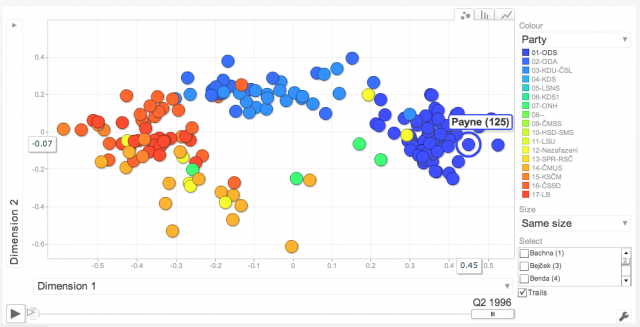Can Open Data Improve Democratic Governance?

Earlier this month, I sat in an auditorium with political scientists, civic start-ups and data geeks that were prompted to answer the question: Can open data improve democratic governance?
NDI supports projects that deal with opening up government data, particularly in emerging democracies (such as these examples on our sister site Openingparliament.org). We, along with many of our partners engaged in this work, believe that open data can improve governance by facilitating better decision-making and potentially help build trust in and engagement with policy makers. With better information, citizens and governments are also able to ultimately make better decisions.
At the event “Can Open Data Improve Democratic Governance” hosted at U.C. Berkeley, presenters focused on how policymakers can better benefit from data use, i.e. how open data can improve democratic governance. Participants also discussed achievement gaps in order to understand how the open data community should evolve in order to improve governance outcomes.
Open data is not useful, several presenters repeated, unless the government and people interacting with it are using it. Many of these issues, in the U.S. context, have been noted by the Sunlight Foundation.
There were four points and questions emphasized by panelists:
Make data more accessible. Data is not useful unless it’s relevant and accessible. Pay attention to who is using the data, and how we can make sure it’s as easy to access as possible.
More beautiful stories, please. To help make data reach the right audiences, there is a need for better design and storytelling when it comes to translating and sharing data sets. How can open data publishers work more closely with data journalists and other intermediary organizations and individuals who have the tools have to help?
Better metrics for public engagement and success. Measuring engagement is still the great unknown. There are weak metrics to determining how success is measured, and how the public is using open data. How should government leaders define success of open data projects?
More recognition for the data creation process. More attention needs to be paid to data creation and everything that goes into it; the context for data collection is not often expressed or accounted for. This is important because the labor that goes into creating data that meets quality standards is difficult. What can government leaders do to support an improved data structure?
Open data can help improve democratic governance, but in order to realize the potential of open data in for better governance it will require open data activists paying more attention on making date more accessible, measuring how it’s used and what goes into making both of these things occur. What do you think? How can we all prepare for better use of open data?
You can see more on the event conversation on the #opendataUC13 feed.
